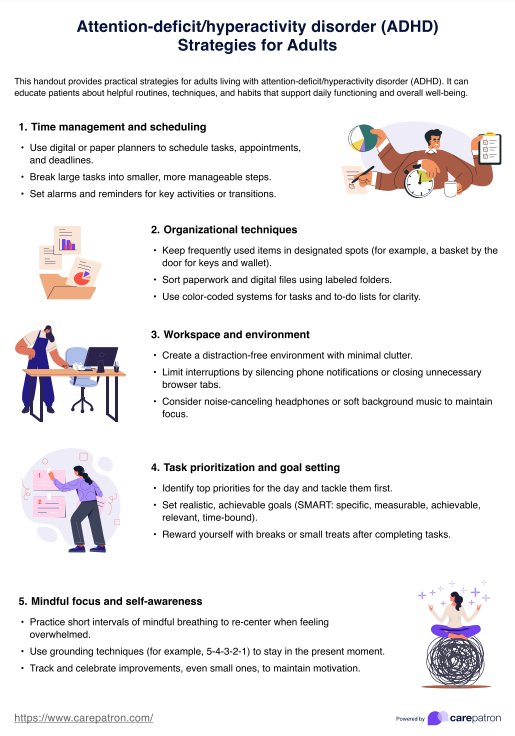One can manage ADHD symptoms without medication management through behavioral strategies such as creating structured routines, practicing mindfulness, and breaking tasks into smaller steps. Cognitive-behavioral therapy (CBT), regular exercise, and a supportive environment also play significant roles in improving focus and reducing impulsivity.

ADHD Strategies For Adults PDF
Managing ADHD can be difficult. Our template has strategies to empower adults with ADHD. Get it today!
ADHD Strategies For Adults PDF Template
Commonly asked questions
Encouraging a calm environment, offering reassurance, and using grounding or relaxation techniques can help an individual regain emotional control. Identifying triggers and implementing coping strategies, such as structured de-escalation steps and professional counseling, can also prevent future meltdowns.
Finding outlets for creativity, engaging in meaningful activities, and having supportive relationships are key factors that can boost happiness in individuals with ADHD. Structured routines, clear goals, and positive reinforcement further enhance their sense of fulfillment and self-esteem.
EHR and practice management software
Get started for free
*No credit card required
Free
$0/usd
Unlimited clients
Telehealth
1GB of storage
Client portal text
Automated billing and online payments











